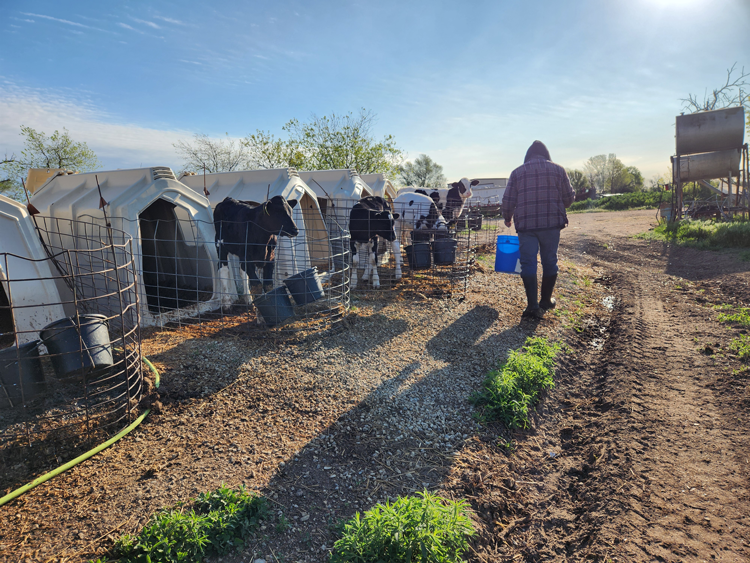
Over the last decade, researchers have connected dairy farms with fewer lung and sinus-related illnesses. The link between this research and dairy cows was a shared nasal biome between the people working on farms and the cattle.
Briefly, the study by researchers at the Marshfield Clinic Research Institute and Washington University School of Medicine determined that the nasal biome of farmers shared many characteristics of the cows they worked with but not of the non-farmer control subjects.
Recently, the same group compared the gut microbiomes of 66 dairy farmers and 166 dairy cows to see if there was a similar link between cows and people.
“Overall, our study demonstrates the interconnectedness of human and animal microbiomes,” said Sanjay Shukla, director of the Center for Precision Medicine Research at Marshfield Clinic Research Institute. “It is increasingly evident that billions of microbes that inhabit the human gut, which includes the stomach, intestines, and colon, have tremendous opportunity to influence the health of a person.”
In this case, the researchers found farmers had fewer gut related symptoms than their non-farmer counterparts, but also that their gut biomes were not that similar to the cattle they cared for. The cows were found to have a much richer and more diverse gut microbiome than both dairy farmers and non-dairy farmers participating in the study.
In this case, the farmers had more Coprococcus eutactus and Roseburia faecis. Both types of gut flora are associated with lower incidence of diarrheal diseases.
The study also analyzed the frequency of antibiotic-resistant genes in the stomachs of both humans and cattle. They found all three study groups — cows, farmers, and non-farmers — to have antibiotic resistant genes. However, they concluded farming had little effect on the building of those resistant genes.
This is welcome news for those of us who give antibiotics on the farm and closely monitor the effect they may or may not have on human antibiotic resistance. This study indicates that sharing the environment with animals that also develop antibiotic resistance does not lead to increased resistance in humans.

The author is a dairy farmer in Kansas and a former associate editor at Hoard’s Dairyman. Raised on a 150-cow dairy near Valley Center, Kansas, Maggie graduated from Kansas State University with degrees in agricultural communications and animal sciences.







